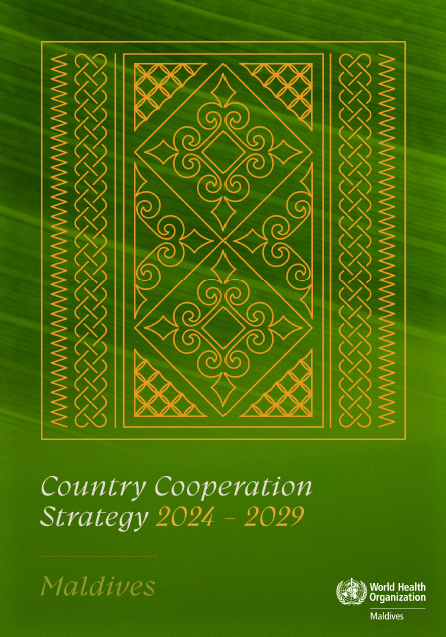
Our work in the Maldives
World Health Organization (WHO) has been providing technical assistance to the Government of Republic of Maldives to strengthen the country’s public health system since 1965. The main thrust of the WHO’s current work in the Maldives is to support the government in its health reform processes and strengthening its health systems. Our on-going collaboration with the Maldives is outlined in the Country Cooperation Strategy (CCS) 2024-2029

Maldives-WHO Country Cooperation Strategy 2024-2029
The Country Cooperation Strategy (CCS) is framed around the WHO General Programme of Work (GPW), specifically GPW 13 and GPW 14, and the WHO South-East Asia Regional Director’s priorities and addresses the 2030 Agenda for Sustainable Development. At the same time, it is anchored in the national development priorities and the United Nations Sustainable Development Assistance Framework (UNSDCF) that has been formulated to support countries on the road to progress with the SDGs. The current CCS builds on the recommendations of the final review of the CCS in 2018–2022. It identifies a set of agreed joint priorities for WHO collaboration, covering those areas where WHO has a comparative advantage in order to ensure public health impact.
The CCS will be implemented in three biennial operation plans, developed with the implementing partners. The implementation of the CCS will be monitored biennially and jointly by WHO and the Ministry of Health (MoH). The CCS has three mechanisms to ensure that the progress towards the outputs and outcomes is on track and the results are achieved. This includes biennial monitoring, midterm review and final evaluation.
CCS Strategic Priorities:
- Reduced risk factors, disease burden and disability
- Realization of universal health coverage (UHC)
- Resilient health system effectively responding in emergencies
Publications and information resources





